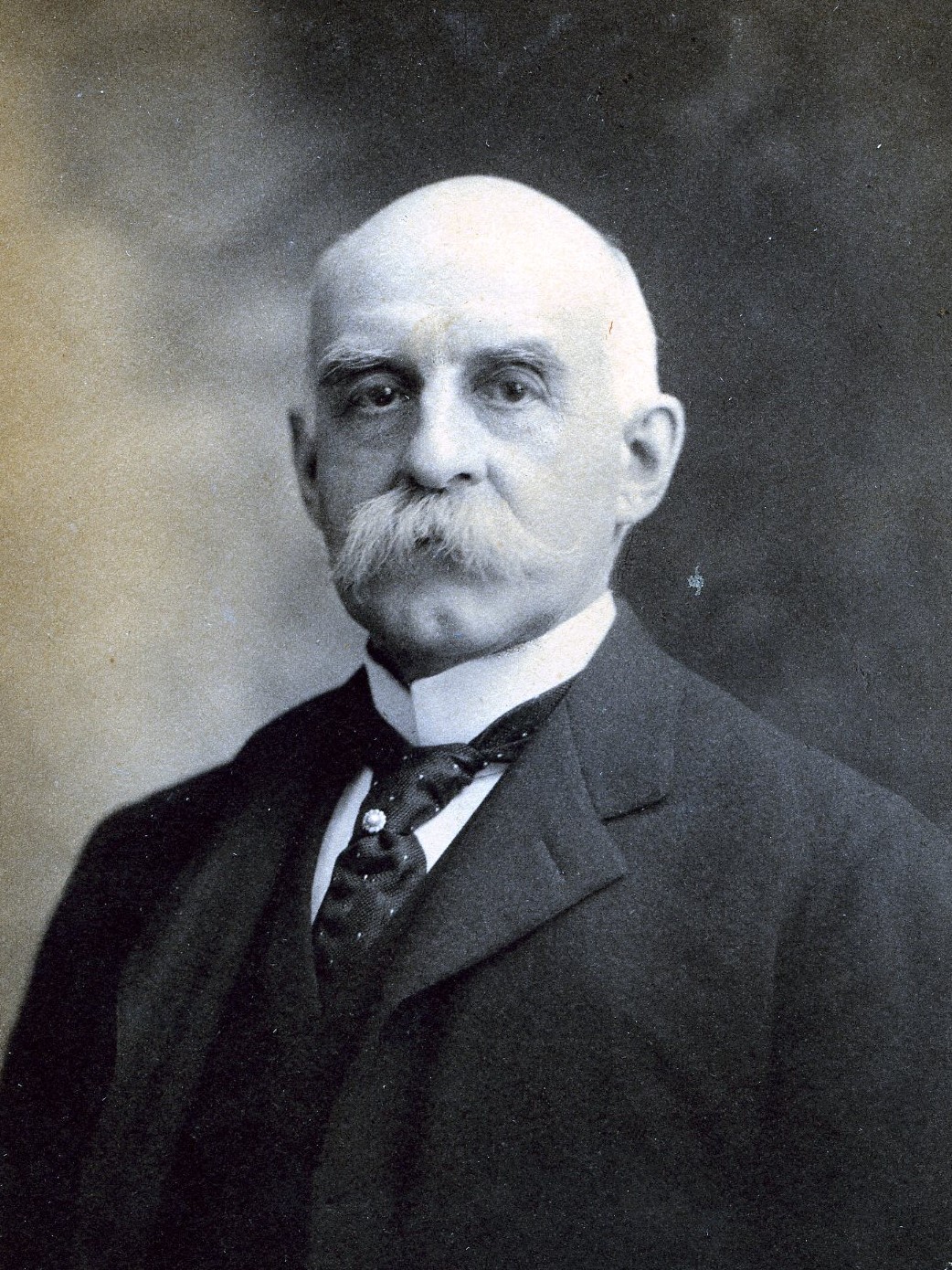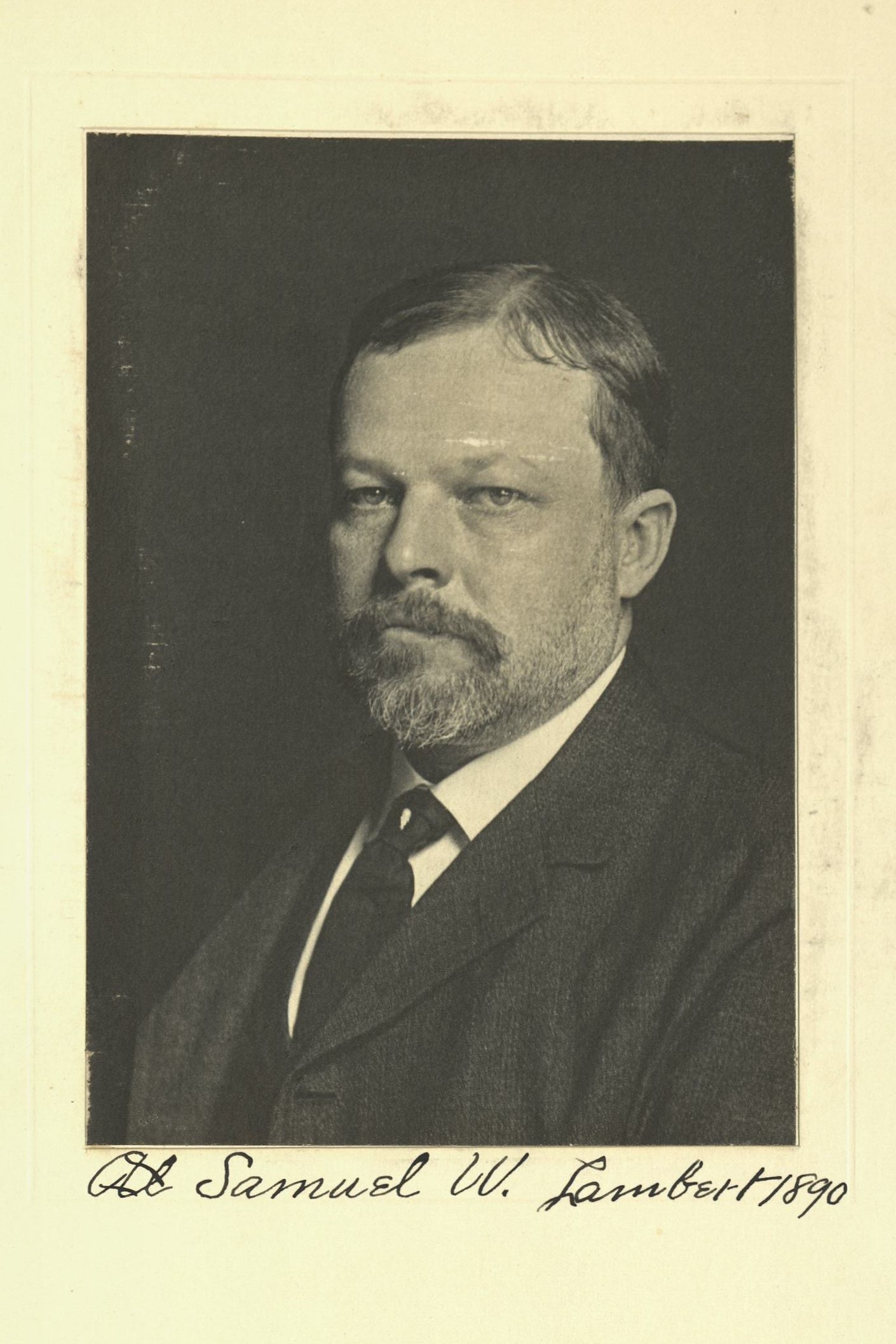Member Directory,
1847 - 1922
James Ewing
Physician
Centurion, 1908–1943
Samuel W. Lambert and Richard T. H. Halsey
Pittsburgh, Pennsylvania
New York (Manhattan), New York
Age forty-one
Bronx, New York

Century Memorial
James Ewing was, in his work and in his play, a distinctive personality, full of fun, intense, modest, extremely loyal to his ideals and his friends, almost quixotic in carrying through his objectives whatever the opposition, and never lacking the ability for forceful presentation of his point of view—a scholar beloved by students and colleagues, a physician of the highest ideals.
Ewing was one of the world’s leading authorities on cancer and the foremost American investigator of the entire field of neoplastic diseases. After graduation from Amherst and the College of Physicians and Surgeons, and advanced studies at the universities of Berlin and Vienna, he worked for eight years as tutor, fellow, and instructor at the College of Physicians and Surgeons, Columbia University. In 1899 he was appointed Professor of Pathology in the new Cornell Medical College and served in that capacity for thirty-three years. After his retirement from the University, he undertook the directorship of Memorial Hospital to devote his time exclusively to cancer research.
His book, “Neoplastic Diseases,” first published in 1918, is used as a standard reference and textbook in this country and abroad; it is a monument to his systematic intellect and genius. He recognized the great need for expansion of elementary medical knowledge of the general public and for the culture and balanced judgment that comes with such knowledge. He led the medical profession’s campaign to impress on the public the importance of early diagnosis and prompt treatment of cancer by surgery, X-ray, or radium therapy. To quote from “An Appreciation” written by Dr. William H. Welch of Johns Hopkins University for the Festschrift of the Annals of Surgery in honor of Ewing in 1931: “. . . there is scarcely a domain in pathology which he has not cultivated, be it morphological, chemical, clinical or experimental. . . . Not the least of Doctor Ewing’s services is that while his pronouncements in the diagnosis of cancer are authoritative, he has exerted a wholesome critical and restraining influence upon hasty generalizations and undue optimism in the interpretation of pathological, etiological, and clinical investigation.” Ewing received wide recognition for his work on tumors and was the recipient of honorary degrees from six colleges and universities and many other awards including the John Scott, the Janeway, and the Clement Cleveland medals, the gold-headed cane of the American Association of Pathologists and Bacteriologists, and the distinguished service medal of the American Medical Association.
Ewing was not an example, however, of all work and no play—far from it. As a devotee of tennis, he, although slightly lame, followed and developed his game with the same characteristic intensity that he put into his work. Despite the years of suffering from tic douloureux that put an end to his play, he never lost his interest in the game.
He was the life of the gatherings at the Century that preceded or followed the meetings at the Academy of Medicine when it was our next-door neighbor; in particular, the lectures of the Harvey Society. The guest speakers in those days were usually foreign scientists of note and the group at the Century select though not always as sedate as at the lecture. An inspiring teacher, an outstanding scientist, a beloved physician, Ewing was always a devoted friend.
Geoffrey Parsons
1943 Century Memorials



